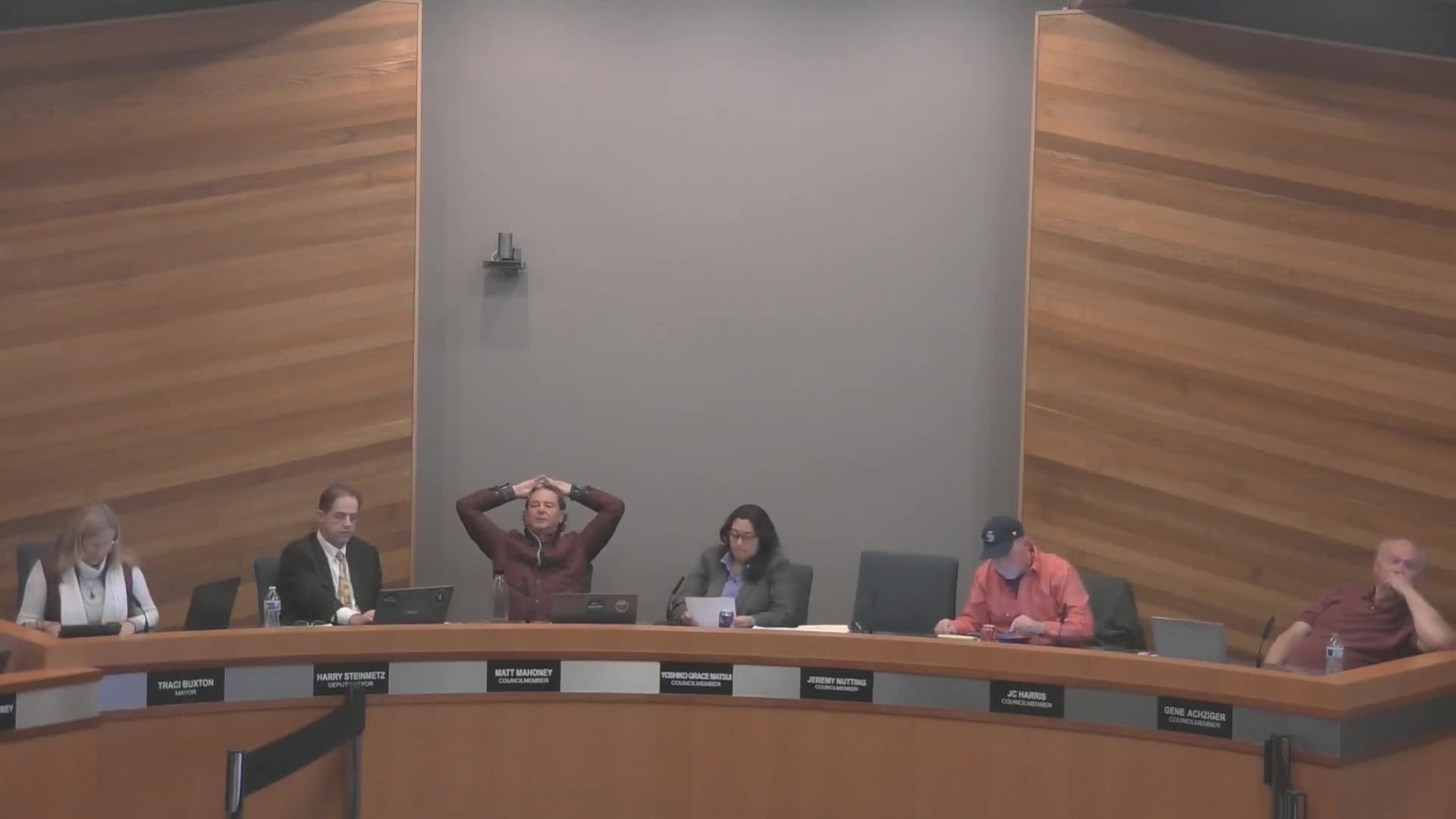Des Moines considers commercial parking tax; staff asked to draft ordinance
Get AI-powered insights, summaries, and transcripts
Subscribe
Summary
Staff told council the state authorizes a commercial parking tax; city lots at the Marina and Redondo would produce the majority of revenue. Council signaled support for staff to draft ordinance language and identify exemptions and administrative practices before bringing a final ordinance back.
Assistant City Attorney Matthew Hudgins briefed the Committee of the Whole Nov. 6 on the authority and options for a commercial parking tax. Hudgins said the state has authorized cities to levy a tax on paid parking and that similar taxes exist in nearby cities (Seattle, Tukwila, Pacific) which use percentage‑based levies while others use a flat per‑transaction fee.
Revenue mechanics and staff estimates - Staff told the committee that most revenue would come from city lots — primarily the Marina and Redondo waterfront lots — and that finance estimates suggest roughly $5,000 per year for each percentage point of tax applied to current parking revenue (for example, a 5% tax would yield about $25,000/year; 10% about $50,000/year at current rates). - The city previously had a parking tax from 2005–2018; it was repealed in part because the revenue was modest and staff preferred to dedicate marina revenues to waterfront bond obligations. - Options discussed included percentage‑based levies versus flat per‑transaction fees and whether to raise base parking rates instead of, or in addition to, a tax.
Administrative and policy issues raised Councilmembers asked whether certain uses should be exempt (public schools, Highline College, carpools, handicapped placards, government vehicles). Staff said an earlier version of the city’s parking tax ordinance had exempted public schools and colleges and that the council could choose to add similar exemptions again. Staff also warned that taxing leased parking spaces embedded in commercial leases would be administratively complicated unless the lease explicitly breaks out parking as a separate charge.
Direction to staff When asked whether staff should move forward to draft ordinance language and further analysis, four council members raised their hands in favor. Councilmembers expressed differing views about whether to include colleges in the tax base; some argued the college uses local services but pays no property tax and should contribute, while others raised concerns about student impacts.
What’s next Staff will return with draft ordinance language, analysis of revenue scenarios (percentage vs. flat fee), and recommendations on exemptions and administrative feasibility before a formal vote. The council did not adopt an ordinance on Nov. 6; it signaled support to proceed with drafting and analysis.
Speakers and sources quoted in this article are drawn from the meeting transcript and include Matthew Hudgins (assistant city attorney) and finance staff.
